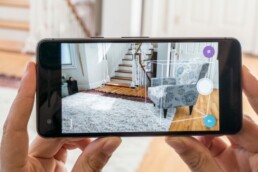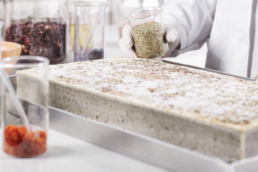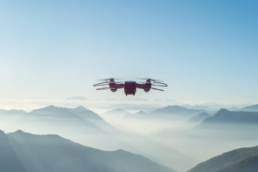South Korea has been trying to be at the forefront of innovation and technology. In 2016, new regulations were drawn to allow drones to be used for delivery, performance, and advertising. Some of these regulations included changing the weight limit drones can carry from 12kg to 25kg and expanding no-fly zones in Korea. Their aim was to, at some point, commercialize drone delivery in South Korea. Since then, many pilot tests have been conducted by the Ministry of Land, Infrastructure, and Transport of Drones transporting goods.
So far, there have been many successful trail runs. Going forward, the primary issue will be Korea’s citizens’ safety. This will mean improving the battery life, so drones don’t start failing once in the air. Software for navigation will also be essential. Therefore the Korean government has proposed a “K-Drone” control tower system that will manage the flight path and schedule of low-altitude drones in Korea. The Korean government has supported forming a creative and innovative economy by supporting startups and entrepreneurs in all industries, including drone technology.
The Drone Delivery Industry in South Korea – A Complete Breakdown
Drone Delivery Test Bed in South Korea – Incheon

Korean startup PABLO AIR is the developer of unmanned aerial software and hardware. They were selected for Incheon’s logistics robot promotion program. The startup offers an integrated drone delivery platform using vertical takeoff and landing drones based on drone swarm technology. The logistics drone operating software is made solely for Incheon. Incheon has the Incheon international airport and many ports and industrial complexes. The platform is capable of operating 100 logistics drones at one time. Therefore, they can offer delivery services by air to island regions near Incheon. Because of the infrastructure Incheon provides, it is the best region in Korea for developing logistics drones and drone demonstrations.
First Commercial Drone Delivery – Busan Port
The first commercial drone delivery service was launched in the southern port city of Busan in early 2021. The delivery involved carrying lightweight parcels from docks to ships. These parcels included SIM cards, hygiene products, and documents. The distance from the port to the ship was over 1.2 miles. The company behind this drone delivery is Marine Drone Tech.
Need for Drone Delivery in South Korea Post COVID-19
The Korean government has already tested an autonomous drone food delivery service in response to the demand for contactless services during COVID. The test occurred in Sejong, which is 130 kilometers southeast of Seoul. Five drones were able to deliver meals, medical supplies, and other goods/products to people at homes 2-3 kilometers away. The drones were able to fly across a lake and high-rise buildings. This was a critical test for South Korea’s adoption of mid-to-long distance delivery services for urban areas. These drones could play a role in flattening the curve of COVID in South Korea.
Food Drone Delivery in South Korea

Woowa Brothers, the operators of Baedal Minjok, one of Korea’s top food delivery service apps, have tested drones to deliver food to their customers. Instead of flying drones, Woowa Brothers is focusing on self-driving robots. More specifically, robots that are capable of traveling between floors to deliver food. Most residents in South Korea live in apartment complexes. Therefore, the robot will need to be able to pass through the main entrance on the first floor. As well as take the elevator to arrive at the front door.
Woowa Brothers have partnered with HDC I-Controls, a home network platform developer, to create a system that allows delivery robots to pass through the security system of apartment doors. In addition, Woowa Brother has partnered with Hyundai Elevator, the largest elevator and escalator producer in South Korea, to commercialize a system that will allow self-driving robots to travel between floors. They tested the self-driving delivery robots at a residential and commercial complex in Suman in late 2021.
Pizza Drone Delivery in Sejong
People in Sejong can get pizza delivered by drones by using their smartphones. This state-sponsored pilot project partnered with Dominos and a Korean drone company called Pilot Square. The pilot program focused on delivering pizza to a lake park near an apartment complex in Sejong (70 miles south of Seoul). It ran only during the weekend. Sejong City has been selected as a drone liberalization zone to promote the commercialization of drones in South Korea. The drone delivery took less than 10 minutes, and users could track the drone’s location in real-time using their smartphone app.
Grocery Drone Delivery in South Korea

GS25, a Korean convenience store franchise, tested grocery drone delivery through their app on a small island called Jangdo. The test was part of a $30 million state project to support contactless logistics and distribution infrastructure using drones, robotics, 5G, and AI technology.
The test involved a drone carrying groceries from a gas station operated by GS Caltex, a major refinery in South Korea. The drone could drop the groceries onto a tractor and fly back to its base station in Yeosu. It could move 700 meters to reach its destination, and the fight took less than 10 minutes. The drone used for the test can carry up to 11 pounds and fly at a maximum speed of 60 kilometers an hour. The battery life on the drone is 30 minutes, and it can carry up to 150 kilograms per fight. It can stay in the air for 300 minutes if the speed is 5 kilometers an hour.
GS Caltex has done further tests, such as carrying lunchboxes and drinks from a gas station in Jeju (Korea’s top beach resort), to a nearby elementary school and a guest house. The trip took 5 minutes. The aim is to have the GS Caltex gas stations act as a hub for their logistics system. Or the gas stations can act as last-mile logistics hubs of drone-based delivery services where the customers can go to pick up their products. The Ministry of Trade, Industry, and Energy will inject $15 million to set up platforms for drone logistics by the end of 2022. The money will go towards upgrading 22 gas stations so that they can conduct drone deliveries.
7-Eleven to Launch Drone Delivery in South Korea
Korea Seven, a subsidiary of Lotte Group, manages 7-Eleven in South Korea. They launched a pilot run of drone delivery services last year by partnering with Pablo Air. They opened a 7-Eleven store housing a station for drones supplied by Pablo Air. Once the safety of the unmanned drones is thoroughly tested and confirmed, they plan to commercialize the service by the end of 2022. The aim initially is to service campers and travelers near the store area.
Drone Taxis in South Korea

Air taxis (drone taxis) are the new transportation solution to combat traffic and overcome environmental issues such as air pollution. Industry experts feel that drone taxis will be a reality in South Korea by 2025. The flying taxi market is expected to reach $1.5 trillion globally by 2040.
A test of the drone taxi was held near the Han River. The drone taxi was a two-seater drone developed by a Chinese company called Ehang. The test did not involve passengers but rather 70 kilograms of rice bags. The drone taxi could stay above the river for 10 minutes (30 minutes if fully charged). They reached a maximum height of 26 meters. It has the potential to travel up to 50 kilometers an hour. In addition, these drone taxis can be controlled by human onboard pilots and look similar to small helicopters.
Popular
Related Posts
The Future of Work in South Korea
April 20, 2023
The Future of UK-South Korea Relations
February 17, 2023






